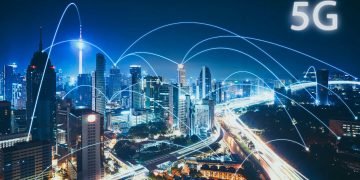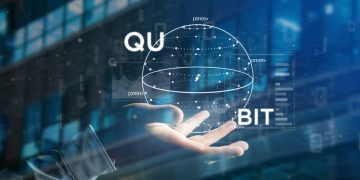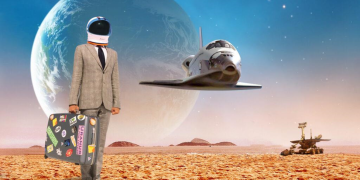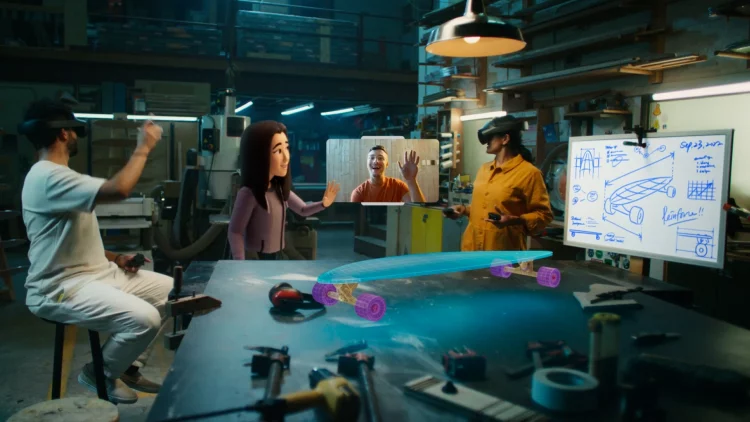Introduction
The Metaverse, a fully immersive, interconnected virtual universe, is not only transforming the way we interact socially and professionally, but it is also poised to redefine the economic landscape. With its rapid growth, technological advancements, and integration of virtual reality (VR), augmented reality (AR), and artificial intelligence (AI), the Metaverse is set to become the next frontier for digital economies. As this virtual ecosystem evolves, it will introduce diverse business models, providing unprecedented opportunities for entrepreneurs, companies, and users alike.
In this article, we explore the future of the Metaverse economy, examining the potential for new economic systems, business innovations, and how the Metaverse will drive commercial activities in ways that were previously unimaginable.
The Emergence of a Digital Economy
Historically, the term “economy” has been associated with physical, tangible goods and services exchanged in the real world. However, the advent of the Internet, e-commerce, and digital platforms has increasingly blurred the lines between the physical and the virtual. The Metaverse takes this a step further by offering a fully immersive digital world where virtual assets, services, and interactions hold as much value as their real-world counterparts.
In the Metaverse, users can buy, sell, and trade virtual goods like digital art, fashion, and real estate. This shift toward a digital economy has been accelerated by technologies such as blockchain, which provides a decentralized and secure way to trade assets. Cryptocurrencies and Non-Fungible Tokens (NFTs) have gained significant popularity, serving as the primary forms of currency in the Metaverse, and enabling the creation of unique, tradeable digital assets.
With major players like Facebook (now Meta), Microsoft, and Google investing heavily in Metaverse technologies, we can expect the rise of more diverse economic activities. Virtual businesses will no longer be constrained by physical borders; rather, they will exist within a decentralized, borderless economy where consumers and creators can interact seamlessly, regardless of geographical location.
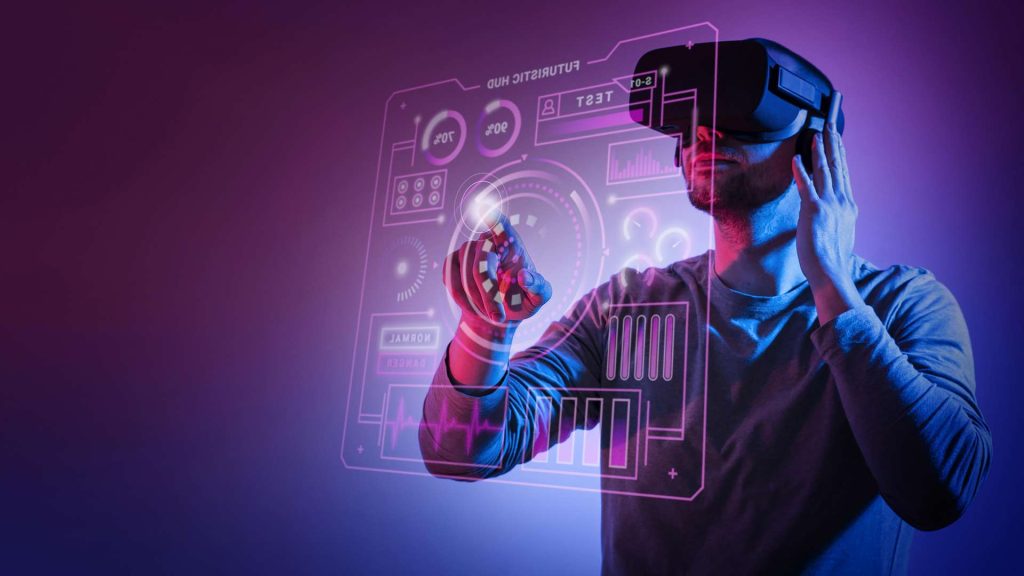
The Growth of Virtual Commerce
One of the most exciting aspects of the Metaverse economy is the rise of virtual commerce, a space where traditional business models meet cutting-edge virtual experiences. Virtual retail stores, marketplaces, and service platforms are already beginning to thrive within digital worlds. Companies are developing innovative ways to bring their brands into the Metaverse, creating fully interactive virtual shopping experiences.
Virtual Real Estate
Real estate is one of the most lucrative sectors in the Metaverse. Platforms like Decentraland, The Sandbox, and Somnium Space have made it possible for users to buy, sell, and develop virtual land. Virtual real estate has become a hot commodity, with luxury brands such as Gucci and Adidas already establishing virtual stores and showrooms within these digital environments. These virtual spaces offer companies the ability to create immersive shopping experiences, host events, and reach global audiences.
Virtual real estate development also opens up opportunities for entrepreneurs to create entirely new types of businesses, such as virtual event planning, virtual hospitality services, and digital entertainment venues. As the Metaverse evolves, the demand for virtual properties will continue to grow, making real estate a central component of the digital economy.
Virtual Goods and NFTs
Virtual goods, whether it’s digital clothing, avatars, or collectibles, have become an integral part of the Metaverse economy. These items are often bought and sold using cryptocurrencies and are commonly represented as NFTs. NFTs enable the creation of unique digital assets that can be owned, traded, and sold within virtual worlds.
The popularity of NFTs has exploded in recent years, with art, music, and video game collectibles all becoming part of the digital asset market. For example, virtual fashion brands are allowing users to dress their avatars in limited edition digital outfits, while gamers can buy unique in-game items, characters, and skins. These goods not only enhance the user experience but also introduce new revenue streams for creators and companies.
The Role of Cryptocurrency
Cryptocurrencies will be the backbone of the Metaverse economy. Bitcoin, Ethereum, and other digital currencies will serve as the primary form of exchange in virtual worlds. With the rise of decentralized finance (DeFi), users will also have the opportunity to participate in lending, borrowing, and staking their cryptocurrency within virtual ecosystems.
Cryptocurrency enables a seamless, global payment system within the Metaverse, allowing users to engage in transactions without the need for traditional financial intermediaries. This also opens up new opportunities for microtransactions and cross-border trade, further enhancing the inclusivity and accessibility of the Metaverse economy.
New Business Models in the Metaverse
The Metaverse economy will give rise to new business models that we have yet to fully imagine. These models will revolve around digital ownership, decentralized governance, and creative collaboration. Below are some of the key business models that will shape the future of the Metaverse.
Decentralized Autonomous Organizations (DAOs)
DAOs are a revolutionary new way to organize and govern digital communities and businesses. In a DAO, decision-making is distributed among participants, rather than being controlled by a central authority. These organizations are powered by blockchain technology, which ensures transparency and fairness in the decision-making process.
Within the Metaverse, DAOs will allow users to collectively own and manage virtual assets, services, and platforms. This could include everything from virtual real estate and digital art to gaming communities and online marketplaces. DAOs will enable decentralized economies within the Metaverse, where users have direct control over the governance and financial activities of their virtual assets.
Subscription-Based Services
In the physical world, subscription-based business models have proven to be highly effective, with services like Netflix, Spotify, and Amazon Prime becoming ubiquitous. In the Metaverse, subscription models are expected to expand into virtual experiences, such as access to premium digital content, virtual training, or exclusive virtual events.
Companies could offer subscription services for virtual environments where users gain access to curated experiences, high-quality avatars, and customized virtual goods. This model allows businesses to create recurring revenue streams while providing users with consistent, ongoing value. For example, virtual fitness platforms may offer subscriptions to attend live classes in a fully immersive digital gym, or educational institutions may provide virtual classrooms and seminars for continuous learning.
Play-to-Earn (P2E) and Virtual Gaming
The gaming industry has long been a major driver of digital economies, and the Metaverse is poised to further expand this trend. Play-to-earn (P2E) gaming is a business model where players can earn real-world value by participating in virtual games. Players can earn cryptocurrency or NFTs by completing in-game challenges, fighting in virtual arenas, or trading rare digital assets.
This model creates a sustainable economy where players can generate income while engaging in leisure activities. It also encourages players to invest time and effort into virtual worlds, fostering a sense of ownership and community. Popular games like Axie Infinity and Decentraland already feature P2E mechanics, allowing users to earn real-world income through gaming.
Challenges and Opportunities in the Metaverse Economy
While the potential for a diverse and prosperous Metaverse economy is enormous, there are several challenges that need to be addressed before it can reach its full potential. These challenges include issues related to privacy, data security, regulatory frameworks, and accessibility.
Privacy and Data Security
The Metaverse will generate vast amounts of data, including personal information, transaction records, and virtual behaviors. This data must be securely stored and protected to prevent privacy breaches and cyberattacks. Companies building the Metaverse must implement robust data protection measures, ensuring that users’ personal information remains private and secure.
Regulatory Frameworks
As the Metaverse economy continues to grow, it will require new regulations to govern virtual commerce, intellectual property rights, and financial transactions. Governments and regulatory bodies must work together to create frameworks that protect consumers, ensure fair competition, and prevent fraud and exploitation in virtual environments.
Accessibility and Inclusivity
One of the greatest opportunities of the Metaverse economy is its potential for inclusivity. The Metaverse can create a space where people from all walks of life can participate in economic activities, regardless of their physical location, socioeconomic status, or physical abilities. However, ensuring that the Metaverse is accessible to all will require significant investment in technology infrastructure, digital literacy programs, and adaptive tools for those with disabilities.
Conclusion
The Metaverse is more than just a buzzword—it is quickly becoming a dynamic and evolving digital ecosystem with the potential to reshape the global economy. From virtual real estate and goods to decentralized business models and play-to-earn games, the Metaverse economy will introduce new ways of creating, exchanging, and experiencing value.
As technology continues to advance, the opportunities for business growth, consumer engagement, and virtual innovation will expand exponentially. However, to fully unlock the Metaverse’s potential, it is essential to address the challenges surrounding privacy, security, regulation, and accessibility.
The future of the Metaverse economy is incredibly exciting, and we are only at the beginning of this transformative journey. By embracing this new frontier, we can build a more interconnected, inclusive, and diverse digital economy for generations to come.










